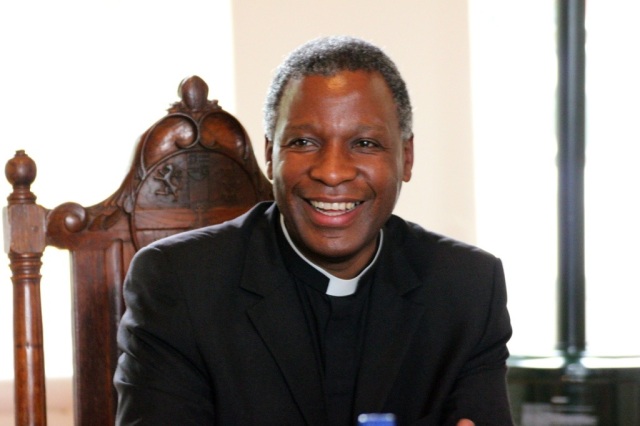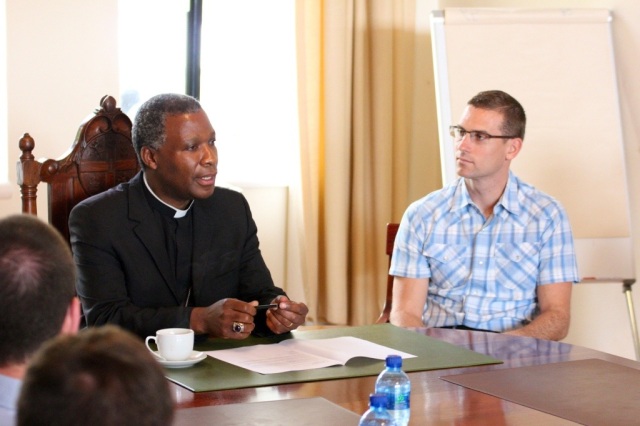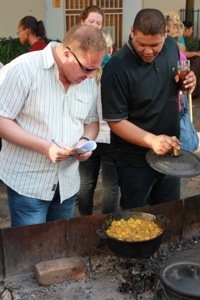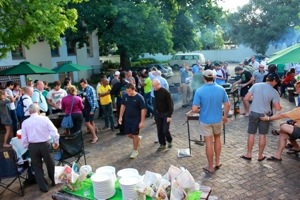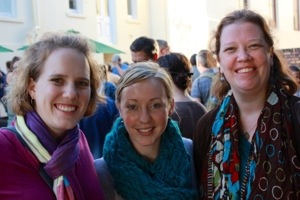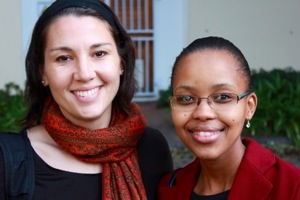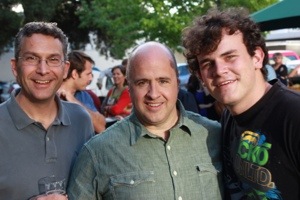Thursday, October 18, 2012
Cape Town and Stellenbosch, South Africa
When I called home this evening, I called today a day of talking. The day started with the Anglican Archbishop of Southern Africa, Thabo Makgobo. I found him to be absolutely riveting, a fascinating man and an incredibly deep thinker. He and his staff were incredibly gracious hosts in his offices in Bishopscourt, and he gave us a generous gift of his time.
He told a story from growing up in a township north of Johannesburg. He was educated under the Bantu Education Act, which deliberately limited education for blacks under apartheid, using the abhorrent explanation, “Why teach them maths when they’ll never use it as servants?” For him, though, he says the Holy Spirit seemed to take him by the scruff and provide him with opportunities, which eventually led him here to Bishopscourt.
He has a friend, the same age (52), who grew up with him. He did not have the same opportunities, and the Archbishop said in the last 30 years, he has been employed a maximum of 6 months. His primary goal is to take his Matric (South African equivalent of a GED) and gain meaningful employment.
The Archbishop talked about his primary emphases, the key issues he focuses on:
- Not to forget the poorest of the poor, but to take their stories into Bishopscourt, among the wealthy, among the politicians.
- Highlight the issue of sanitation and water (his staff later mentioned he is known in some quarters as “The Toilet Bishop” because of his work on sanitation.) He went on to ask a provocative question: “What does incarnation mean for those without sanitation and water?
- The disparity between the poor and rich. He asked, “Why does the free market system create such wealth for some, and such poverty for my friend? What then is a theology of welath-making? And is there an alternative?”
We asked him what changes are needed in the Anglican Church in South Africa today:
- “We’ve been a dominant church and have taken that for granted.”
- Need to take evangelization seriously.
- How do we recommit ourselves to serving God in society?
- How do we form and strengthen Anglicans to join in what God is doing?
Then over lunch we met with the Cheryl Bird, an Anglican priest working as the Women’s Desk for the Archdiocese, and Rachel Mash, a priest with the Fikelela AIDS Project. Cheryl sat at my table over lunch, and so we had a chance to talk with her the most. She is a born and bred Capetonian (from Cape Town, as the natives call themselves), and grew up under apartheid as a so-called “Coloured” — in the race obsession of apartheid, if someone wasn’t black, but wasn’t white, they were either “Indian” or a catch-all “Coloured.” The method of determining if someone was Black of Coloured was simply insane: it was called the “Pencil Test,” when some white bureaucrat sitting behind a desk pushed a pencil into their hair; if it stuck, they were black; if it fell out, they were Coloured. The tragedy of this arbitrary system is that children would be classified differently than parents, or spouses from each other, and under apartheid’s rules different races were separated — different schools, different areas where they were allowed to live, and more.
Cheryl is “Coloured,” and it hit me over lunch when she said, “I wouldn’t be allowed in a place like this.” She went on as she was describing life under apartheid and said, “Growing up as Coloured, I thought God must not love me enough, to make me Coloured.”
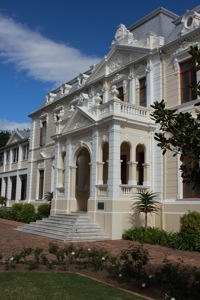
Finally, this afternoon we travelled to Stellenbosch, the heart of the South African wine country, and home of the University of Stellenbosch. There we met several of the theological faculty, and joined the students and faculty in a Potjie (“Poi-tee,” as near as I could tell) cook-off, a common Afrikaaner tradition. Basically a Potjie is a communal dish made in a cast-iron pot (Dutch oven or the like), stewed for 3-4 hours, while the group enjoys wine and conversation, all about building relationship. The students didn’t quite know who we were — they weren’t prepped for us, apparently — but they were very friendly.
I had a chance to talk with one of the students, a 27-year-old theology student who was born and raised in Cape Town. I asked her if Capetonians in their daily life are aware of the townships, and she said absolutely, they can’t miss them. Since Cape Town doesn’t have public transportation, Capetonians have to drive to get anywhere, and all routes go past the townships. So they certainly are aware; but, she went on to say, a certain numbness sets in after awhile — the tragedy is so massive and terrible, it gets overwhelming, and human nature is to get numb. Understandable and certainly a feature of human nature, I would imagine.
She also mentioned that tour companies, coach companies, hotels and travel agencies, do their best to route tourists to and from the airport out of their way to avoid going past the townships. I wondered why — was it to “protect” the tourists? She didn’t think so, but said it’s out of a sense of shame as South Africans, that this kind of poverty exists here and they haven’t been able to eradicate it.
I continue to learn more about Khayelisha Township. A colleague, Dan Brown, noted there are no mailboxes, nor even addresses, on the various shacks and houses in the township. The residents don’t seem to exist as far as postal systems go.
And, I heard today that the Township has a rat problem — except that their rats are cat-sized, and when it rains, they come up out of the wetlands and into houses, where they creep in and nibble on people — toes, fingers, legs — especially children and babies. People lose feet and limbs because of infection caused by the rats.
Last night, I prayed over dinner, and as has been my pattern for some time, I included in my prayers the phrase: “…and teach us to remember those who will go their beds hungry tonight.” That prayer has never meant quite this much.

